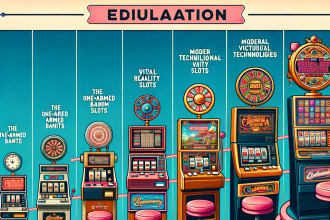In an increasingly digital and interconnected world, online casinos have surged in popularity, attracting millions of players seeking entertainment and the thrill of potential winnings. Central to the integrity and fairness of these casino games is the Random Number Generator (RNG), a technology that ensures each game outcome is random and unpredictable. To maintain player trust and regulatory compliance, RNGs must undergo rigorous testing and certification in specialized RNG testing labs. This article explores the detailed processes involved in RNG testing, the importance of certification, and the future trajectory of these critical standards.
Understanding the Importance of RNG Testing in Gaming
RNGs are at the core of every electronic gaming experience, whether in a physical casino or an online platform. These algorithms generate outcomes for games in real-time, ensuring that no two sessions are alike. However, the integrity of these outcomes is paramount. If players suspect or prove that the RNG is biased or manipulated, not only does player trust diminish, but legal repercussions for the casino can also follow.
Key Reasons for RNG Testing
- Fairness: RNG testing helps ensure that every player has an equal chance of winning, preserving the game’s integrity.
- Regulatory Compliance: Many jurisdictions require RNG testing to safeguard against fraud and ensure fair play.
- Player Confidence: Transparent RNG testing inspires trust among players, which is crucial for the casino’s reputation.
- Market Competitiveness: Certified games tend to attract more players, giving casinos a competitive edge.
- Technological Integrity: With advancements in technology, continual testing ensures that RNGs remain robust against potential vulnerabilities.
The Role of Certification in Casino Game Integrity
Certification serves as the seal of approval that assures players, regulators, and operators that a game is fair and operates as intended. Without this certification, players may question the legitimacy of the games they play.
Certification Benefits
- Regulatory Approval: Certified games comply with local and international gaming regulations, essential for legal operation.
- Market Entry: Certification can be a prerequisite for launching games in certain jurisdictions.
- Consumer Protection: Players can make informed choices about which games to engage with based on their certification status.
- Standardization: Provides a standardized approach to testing, enabling easier comparison between different game offerings.
How RNG Testing Labs Ensure Fair Play for Players
RNG testing labs play a crucial role in maintaining the integrity of gaming systems. These independent entities are responsible for conducting thorough evaluations of RNG algorithms used in casino games. The process is both technical and extensive.
The Testing Process
- Algorithm Evaluation: Labs assess the RNG algorithm to ensure it meets industry standards.
- Statistical Testing: Each outcome generated by the RNG is analyzed using statistical methods to ensure randomness and unpredictability.
- Hardware Testing: The physical devices running the RNG may also undergo testing to ensure they operate correctly under various conditions.
- Compliance Checks: Labs verify that the games comply with relevant regulatory guidelines.
- Reporting: Post-testing, labs provide detailed reports outlining their findings, which are crucial for certification.
The Technical Process Behind RNG Testing Procedures
RNG testing involves a series of sophisticated methodologies to evaluate the performance and reliability of RNG algorithms.
Technical Steps
- Data Collection: The RNG generates a large volume of outcomes to provide a comprehensive data set for analysis.
- Statistical Analysis:
- Chi-Squared Tests: Assesses how expected frequencies compare to observed frequencies.
- Monte Carlo Simulations: Simulates the outcomes of games over many iterations to check for randomness.
- Entropy Testing: Measures the randomness of the data to ensure that it’s not predictable.
- Audit Trails: Maintaining logs of all tests conducted, ensuring transparency and accountability.
- Result Interpretation: Experts analyze the results and determine if the RNG meets the required standards for randomness and unpredictability.
Here is a simple table outlining key statistical tests used in RNG Testing:
| Statistical Test | Purpose |
|---|---|
| Chi-Squared Test | Compares expected vs. actual outcomes |
| Kolmogorov-Smirnov Test | Measures the difference between distributions |
| Runs Test | Evaluates the occurrence of sequences |
| Entropy Test | Measures the randomness of the output |
Regulatory Standards: What Casinos Must Comply With
Various regulatory bodies oversee the certification process, setting specific standards that casinos must comply with in their RNG implementations. These standards vary by jurisdiction, but common elements can be found in many regulatory frameworks.
Major Regulatory Bodies
- UK Gambling Commission: Ensures fair play in the UK market.
- Malta Gaming Authority: Sets standards for online gaming operators in Malta.
- New Jersey Division of Gaming Enforcement: Regulates online gaming in New Jersey.
- Alderney Gambling Control Commission: Oversees online gaming licenses in Alderney.
Compliance Factors
- Adherence to local laws and regulations.
- Regular audits by independent testing labs.
- Immediate reporting of any anomalies or irregularities detected.
Transparency and Trust: Building Player Confidence
Transparency in RNG testing is vital for fostering player confidence. Players need assurance that the games they engage with are fair and their chances of winning are genuine.
Strategies for Enhancing Transparency
- Public Certifications: Casinos can display certification seals prominently on their websites.
- Detailed Reports: Providing access to testing reports and methodologies used.
- Player Education: Informing players about how RNGs work and the importance of testing.
- Third-Party Reviews: Engaging independent reviewers to evaluate games and RNG performance.
Common Myths About RNG Testing Exposed
Despite the rigorous testing and transparency, many myths persist about RNGs and their integrity.
Debunking Myths
- “RNGs are Manipulated”: RNGs are designed to be unpredictable, and testing ensures compliance with fairness standards.
- “All RNGs are the Same”: Each RNG can have unique algorithms and methods; hence, testing is crucial.
- “Only Online Games Require Testing”: Both online and land-based casinos must comply with RNG standards.
- “Players Can’t Trust Certification”: Independent testing labs are highly regulated and accountable.
The Future of RNG Testing in an Evolving Market
As technology evolves, the methods and standards surrounding RNG testing must adapt. Emerging technologies, like blockchain and artificial intelligence, may influence how RNGs are developed and tested.
Future Considerations
- Integration of Blockchain: Could enhance transparency and trust in RNG outcomes.
- Increased Regulatory Scrutiny: As online gaming becomes more popular, regulatory bodies may impose stricter standards.
- Real-Time Testing: Developing methods for continuous testing and monitoring of RNGs during gameplay.
- Artificial Intelligence: Potential to improve RNG design and testing processes.
The Impact of RNG Standards on Game Development
RNG standards significantly influence game development, shaping the creation of new games and the evolution of existing ones.
Design Implications
- Creative Freedom: Developers must balance creativity with compliance to ensure games meet RNG standards.
- Market Variability: Different jurisdictions may require unique adaptations of games to meet local RNG regulations.
- Innovation: Stricter standards may drive developers to innovate in how games are structured and outcomes are determined.
Conclusion: The Critical Need for Rigorous Testing Standards
In the world of online gaming, RNG testing and certification are indispensable for ensuring fairness and integrity in casino games. Through rigorous testing in accredited labs, casinos can guarantee that their games meet regulatory standards, ultimately fostering player trust. As the gaming landscape continues to evolve, the commitment to maintaining high testing standards will play a crucial role in safeguarding player interests and ensuring the longevity of the industry. The future of RNG testing will undoubtedly bring technological advancements and regulatory evolution, but the fundamental need for rigorous testing will remain a cornerstone of fair play in gaming.











